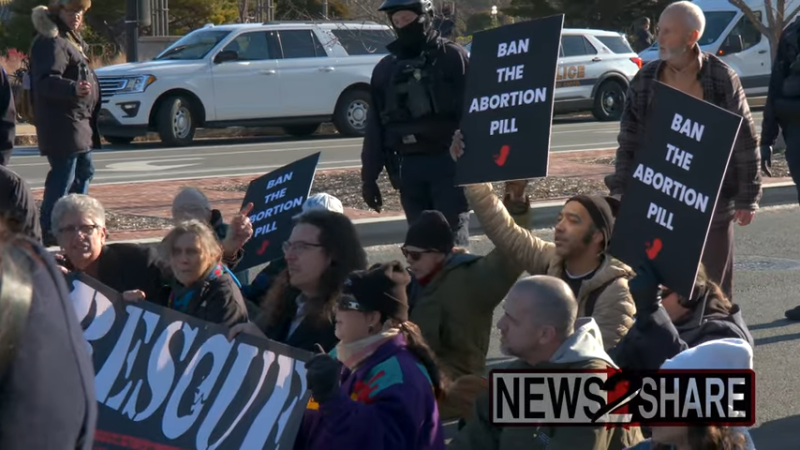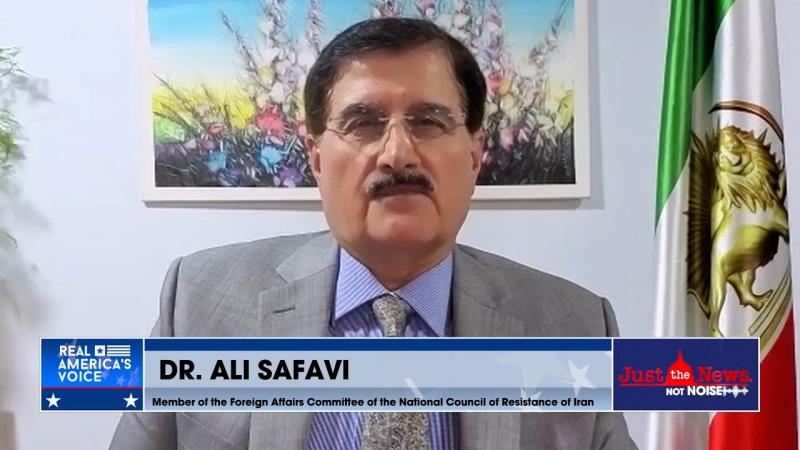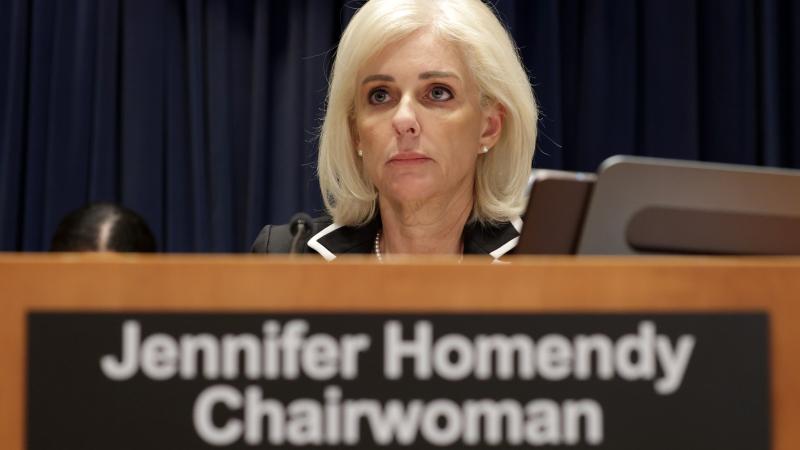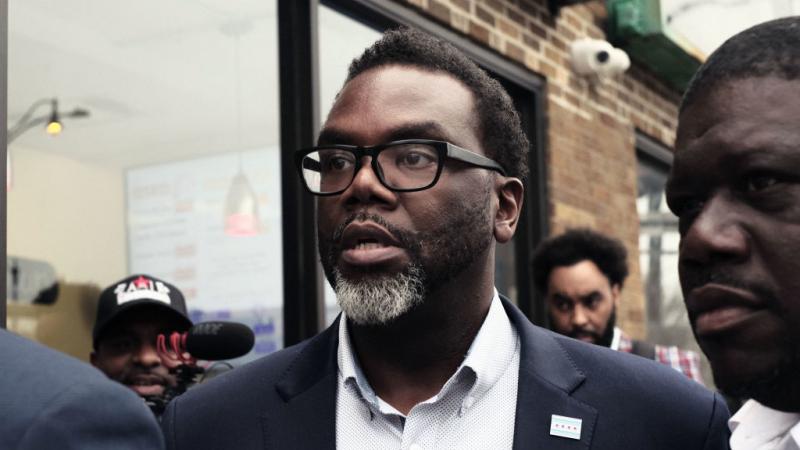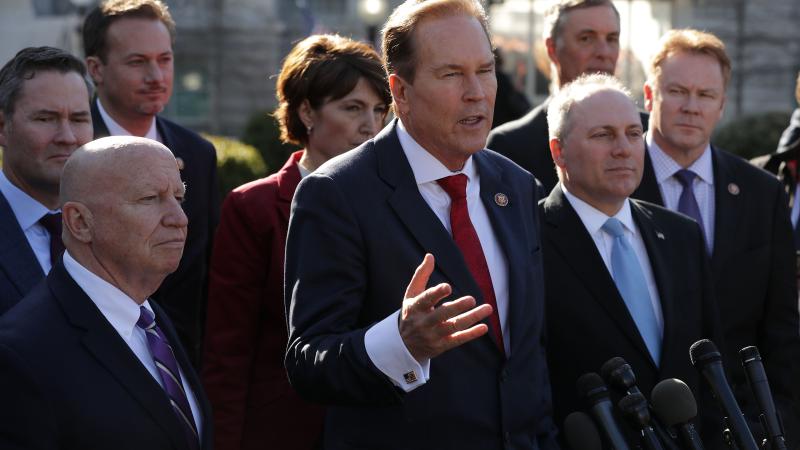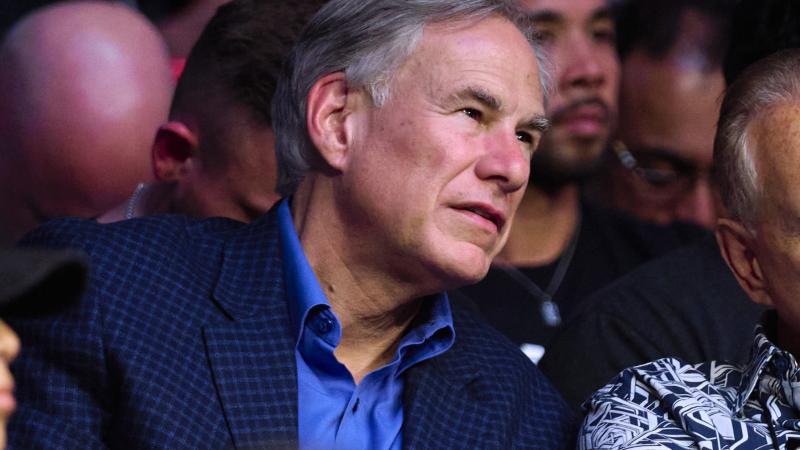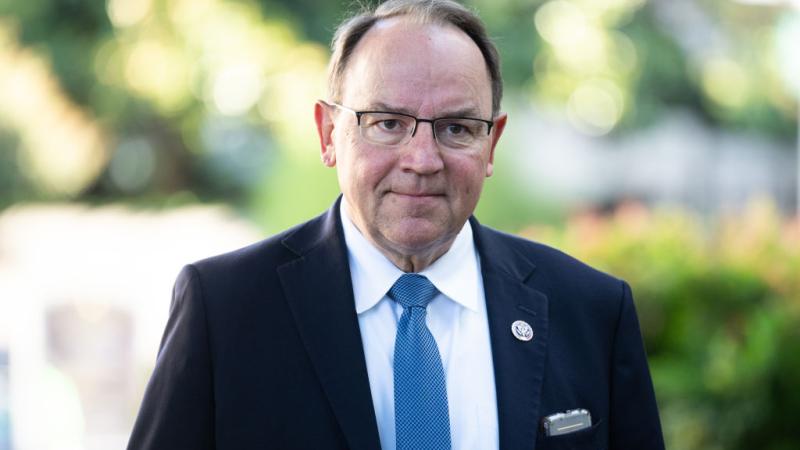ACLU loses last-ditch effort to stop SCOTUS from evaluating state bans on males in girls' sports
ACLU and transgender client Lindsay Hecox sought a no-exceptions stay of district court proceeding as SCOTUS decided whether to grant Idaho's petition, and trying to drop case now seems "somewhat manipulative," judge says.
When the Supreme Court agreed to consider whether Idaho and West Virginia can ban males from girls' sports, two weeks after upholding Tennessee's ban on medicalized gender transitions for minors, the transgender track athlete who defeated Idaho at trial and appeals courts got cold feet and tried to stop SCOTUS from hearing Idaho's part of the case.
Lindsay Hecox, who is male, decided to "cease playing women’s sports in any context covered by H.B. 500" and dismissed the suit with prejudice so it cannot be filed again, claiming that continuing the litigation through SCOTUS will threaten Hecox's "mental health, my safety, and my ability to graduate as soon as possible."
U.S. District Judge David Nye, whose injunction against Idaho's law as applied to Hecox was upheld by the 9th U.S. Circuit Court of Appeals, doesn't think the ACLU-represented athlete is playing it straight.
The President Trump nominee, who saved Hecox's challenge three years ago when the 9th Circuit questioned whether the lapsed athlete would resume competing and thus maintain legal standing to sue Idaho, interpreted Hecox's late-breaking about-face as "somewhat manipulative to avoid Supreme Court review" and ruled it "should not be endorsed."
Nye granted Idaho's motion to strike Hecox's notice of voluntary dismissal, in the latest setback for the ACLU's quest to preempt state laws that favor sex over gender identity, through federal regulation and the federal courts, while keeping SCOTUS from hearing close cases.
Federal courts including President Biden's nominees blocked his administration's Title IX regulation conflating sex and gender identity as his lone term closed, leaving the first Trump administration's sex-based Title IX regulation in place. Second-term President Trump's executive orders against gender ideology left SCOTUS the ACLU's last hope.
That hope was dashed in June when a 6-3 court rejected the ACLU's argument, on behalf of transgender children's families, that gender identity is a protected trait like sex and race in the context of Tennessee's ban on puberty blockers, cross-sex hormones and surgery as treatment options for gender-confused youth.
Justices Amy Coney Barrett and Clarence Thomas went even further in a concurrence, saying transgender individuals cannot qualify as a "suspect class" because they don't share "obvious, immutable, or distinguishing characteristics" of a discrete group.
The ruling was predicted in oral argument 10 months ago, when Justice Samuel Alito forced ACLU lawyer Chase Strangio, a female who identifies as a man, to acknowledge the group had no evidence that suicides increase when gender-confused children are denied so-called gender-affirming treatment, undermining a key dogma of transgender activists.
Months before that SCOTUS argument, the ACLU also struggled to explain to the 9th Circuit why its precedent in favor of California's ban on talk therapy for minors with unwanted same-sex attraction didn't also favor Idaho's ban on gender-affirming treatment for minors.
“From day one in office, defending this law has been a top priority because Idaho’s daughters deserve fair competition based on biological reality," Idaho Attorney General Raul Labrador said after Nye's ruling. "The district court has ruled that after years of litigation, Idaho has earned the right to present our case to the nation’s highest court."
The ACLU and Hecox's other lawyers at Cooley, LLP, and Legal Voice did not comment on Nye's analysis in a statement to Fox News.
"Lindsay ended her participation in any women’s athletic programs covered by HB 500 to prioritize finishing her degree at Boise State and her personal safety and wellness," and Hecox's withdrawal of the challenge "remains unchanged," they said.
"In West Virginia v. B.P.J., the U.S. Supreme Court will address a challenge to a nearly identical law," the statement continued. (Judge Nye called the two laws "slightly different.") "We will continue to advocate for the rights of all women and girls, including transgender women and girls," the legal groups said.
When Idaho petitioned SCOTUS to review the 9th Circuit's block on the law, the "central" discussion in an "informal video conference" between Nye and the parties was their "desire to stay all proceedings in this case pending" the petition's outcome, Nye wrote.
They disagreed on one element, "whether briefing on an additional motion to intervene should be allowed during the stay," with the ACLU favoring a stay that bans "any action" and Idaho requesting an exemption for female athletes seeking to argue in Idaho's favor.
Nye agreed with the ACLU, emphasizing "any motion to intervene would have to wait until 'after the stay is lifted,'" the judge said, quoting his order.
When the ACLU backtracked based on Hecox's sudden reluctance, Labrador and Idaho's outside co-counsel at the Alliance Defending Freedom told SCOTUS the challengers were trying to have their cake and eat it too, ignoring the "plain terms" of the stay.
They pointed to a 25-year-old precedent that prevented a "nude dancing club" from getting out of its own lawsuit against Erie, Pennsylvania's ban on publicly appearing in a "state of nudity" – which the club won in state court – after SCOTUS granted Erie's petition for review.
"Simply closing Kandyland is not sufficient to moot the case because Pap's is still incorporated under Pennsylvania law, and could again decide to operate a nude dancing establishment in Erie," the late Justice Sandra Day O'Connor wrote for the court on the mootness issue.
The 9th Circuit block on its law gives Idaho an "ongoing injury," while "Hecox has a 'concrete stake in the outcome of this case' as a student at BSU who could still choose to play women’s sports, and this Court has an 'interest in preventing litigants from attempting to manipulate the Court’s jurisdiction,'" Idaho and ADF told the high court.
They emphasized Hecox's standing has been an issue throughout the five-year litigation. The athlete's "plans for college sports have been in constant flux and have rarely materialized as stated," whether women's track or Hecox's backup of women's club soccer.
When Idaho and ADF petitioned SCOTUS, "Hecox did not say anything about potentially withdrawing from women’s sports at BSU" but explicitly said the athlete was "playing women’s club soccer and running" in what was supposed to be Hecox's final year of college, which also turned out to be false, they said.
Instead, Hecox waited until 10 days before the state's merits brief was due before trying to withdraw the case in Nye's court and filing a "suggestion of mootness" with SCOTUS.
Nye's order Tuesday analyzes the "interplay between the Court’s stay order and Rule 41" of the Federal Rules of Civil Procedure, the latter of which Hecox correctly followed by voluntarily dismissing the case "before the opposing party serves either an answer or a motion for summary judgment."
Hecox went so far as to tell Nye to butt out of the issue, claiming Rule 41 overrides the no-exceptions stay that Hecox and the ACLU themselves sought.
The issue is so close, based on Nye's own "independent research," that the judge emphasized his holding in favor of Idaho "applied solely to this case."
He gets Rule 41 dismissal notices "on almost a weekly basis," but about half the time a party contacts the court asking why he hasn't entered a dismissal order, which Rule 41 doesn't require for a case to be closed.
"For example, sometimes a pro se party is confused if the case is 'really closed' or a state agency is a party and requests a formal order from the Court confirming the case is terminated so that it can undertake other related action," so he'll "often oblige," Nye said.
While Rule 41 conditions dismissal without a court order on "various rules and provisions," none appears by itself to block Hecox's notice, he acknowledged, so Nye has to decide "how much weight the Court should give its own stay."
Since the 9th Circuit grants each of its courts the "inherent power to control [its] docket," Nye "sees no reason suggesting why that power should not apply to dismissal notices – when necessary," and since neither party nor Nye himself could find case law that clearly answers the question, Idaho narrowly wins the argument.
He's "somewhat persuaded by the idea that Hecox waived her right to file a notice of voluntary dismissal – at least temporarily," with no language in Rule 41 "suggesting dismissal is immune from wavier [sic]."
Plaintiffs are "bound by principles of fairness and economy," and given that Idaho "has defended this case vigorously for years," Nye said it would be "fundamentally unfair to abandon the issue now on the eve of a final resolution." Hecox agreed to a no-exceptions stay and "cannot escape the realities of that agreement … simply because she has had a change of heart."
In the footnote in which Nye worried about mootness as manipulation, he reiterated the consistent throughline of the five-year lawsuit: "While it appears more likely than before that Hecox will not reengage in collegiate sports, she could still change her mind."
The Facts Inside Our Reporter's Notebook
Links
- Supreme Court agreed to consider
- upholding Tennessee's ban on medicalized gender transitions
- defeated Idaho at trial and appeals courts
- dismissed the suit with prejudice
- saved Hecox's challenge three years ago
- 9th Circuit questioned
- resume competing and thus maintain legal standing
- Nye granted Idaho's motion to strike
- blocked his administration's Title IX regulation
- oral argument 10 months ago
- Justice Samuel Alito forced ACLU lawyer Chase Strangio
- no evidence that suicides increase
- ACLU also struggled to explain
- Idaho Attorney General Raul Labrador
- Labrador and Idaho's outside co-counsel
- 25-year-old precedent




